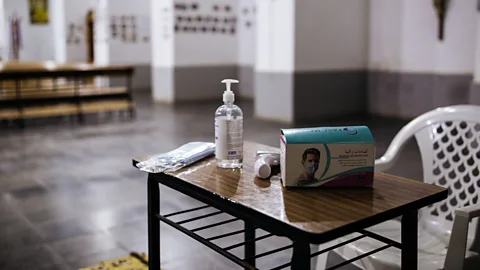The long shadow of Covid-19 myths
 Kang-Chun Cheng
Kang-Chun ChengLike in many countries, misinformation about Covid-19 has circulated widely in Morocco during the pandemic. Much of it came from the US and Europe.
In early April 2020, just as the Covid-19 pandemic was spreading across the world, two French doctors suggested on live television that scientists test the tuberculosis vaccine on Africans to see if it might work against Covid-19.
Reporting for this story was ed by the Pulitzer Center. It is the second article on vaccine hesitancy in Morocco. You can read the first article on Western Sahara, North Africa's Covid-19 "black hole" here.
"If I can be provocative, shouldn't we be doing this study in Africa, where there are no masks, no treatments, no resuscitation">window._taboola = window._taboola || []; _taboola.push({ mode: 'alternating-thumbnails-a', container: 'taboola-below-article', placement: 'Below Article', target_type: 'mix' });
